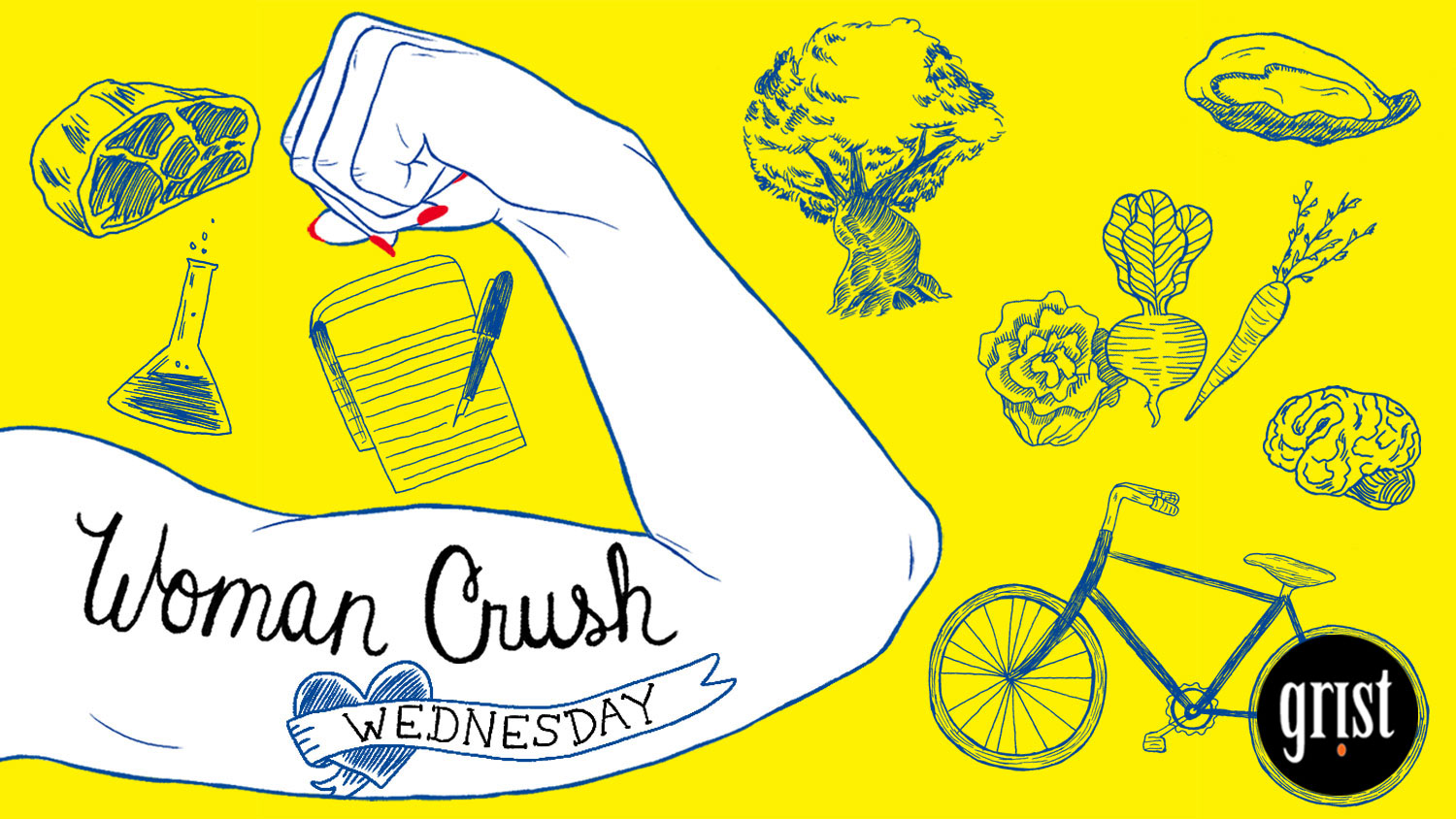Welcome back to Woman Crush Wednesday, our weekly roundup of badass ladies making the news. This week, we’d like to give a very special shout-out to all the new grads who are now free to go out and kill it in the real world. Don’t worry, babes — it’s not as scary as it seems.
ICYMI: Last week, yours truly had the honor of appearing on MSNBC’s Greenhouse to talk about this very column and some of my previous crushes. Too bad my hair doesn’t look as great as Tony’s:

But enough about me — let’s get back to business!
Here’s who we’ve been crushing on this week:
- Sonja Khan, a recent computer science graduate from the University of Washington. Last year, about 30 percent of UW’s bachelor’s degrees in computer science were given to women — that’s roughly twice the national average. Snaps for Grist’s hometown of Seattle! (New York Times)
- Althea Raiford, a U.S. Navy veteran and owner of Gilliard Farms in Brunswick, Ga. with her brother, Matthew, also a veteran. Former servicewomen like Raiford keep serving our country (with tasty organic produce) well after they’ve returned from overseas. (Modern Farmer)
- Mafalda Duarte, manager of Climate Investment Funds, an organization bringing clean energy to developing countries. Valued at $8.3 billion, it’s one of the largest climate funds in the world. (Fortune)
- Grist’s own Eve Andrews, for her new series Friday Night Rights, which delves into the discrepancies many women face while accessing birth control. “For teens in America seeking the best birth control and solid sex ed, zip code matters more than it should,” Andrews writes. “City girls and country gals can have very different experiences around reproductive rights and health.” (Grist)

- Jill Lepore, for her eye-opening article in The New Yorker about the constitutional validity of a woman’s reproductive rights. It’s a must-read for any woman wondering why we’re still arguing about our right to birth control. (The New Yorker)
- Robin Emmons, of Sow Much Good, an urban farm nonprofit in North Carolina. Emmons turned her backyard into an organic garden after her brother — who has a history of mental illness — entered transitional housing and became ill from the processed food served to him there. Now, Sow Much Good grows and distributes organic produce to low-income communities across the region. (The Perennial Plate)
Stay tuned for next week’s roundup!




